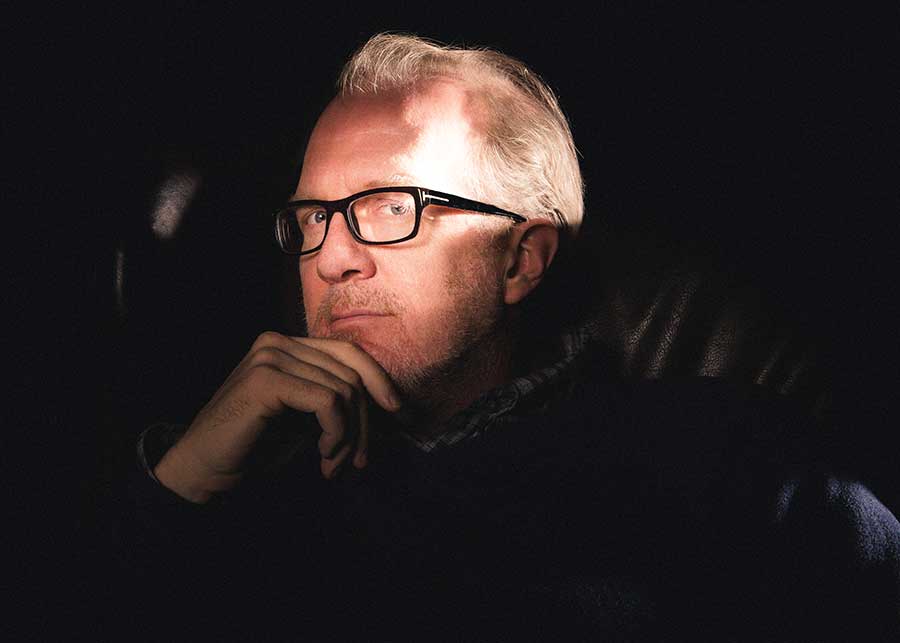Each month Brian James Polak (he/him) talks to playwrights about the things usually left unsaid. In conversations that dive into life’s muck, we learn what irks, agitates, motivates, inspires and—ultimately—what makes writers tick.
This month, Brian talks to playwright and actor Tracy Letts, who recalls the literate household his English teacher parents made for him in Oklahoma. Though he mainly focused on acting from high school onward to an early career in Dallas and eventually Chicago, writing was always somewhere in the back of his mind, though he never quite thought he would have a career in it.
He wrote his first play, Killer Joe, with the intention of connecting the Chicago theatre; he also wanted to provoke audiences and create a play that could be easily produced. The play accomplished that mission, even though it has never found success outside small 100-seat theatres, unless you count a run in London’s West End, which was the first time Tracy ever had a moment to think he might be a playwright. (The play later led to a 2011 film.)
Once he’d cracked into the Chicago ecosystem, though, Tracy tried his hand at Los Angeles while he still had a shot at leading man roles. That ended with what he calls his “Talented Mr. Ripley moment”—i.e., it was while watching Jude Law and Matt Damon on screen that he realized, “It’s never going to happen for me.”
His return to Chicago theatre has worked out well for him: The move changed the trajectory of his career, as it led to a membership with Steppenwolf, for whom he wrote Man from Nebraska and not long after that August: Osage County (a Pulitzer and Tony winner). His acting career also got a boost from the return to the Windy City, both onstage and in screen roles ranging from Homeland to Lady Bird.
The Broadway run of his latest project, The Minutes, was originally scheduled to open in March 2020 but was shut down due to the pandemic. It’s now at the Studio 54 theater, with Tracy himself in the role of Mayor Superba.
This episode can also be found here.
Subscribe to the Subtext on iTunes, Spotify, Stitcher, Google Play, TuneIn, or via its RSS feed.
Have something you’d like to say to the Subtext? Call 505-302-1235. Your message might be used on a future episode. You can also email the podcast at TheSubtextPodcast@gmail.com or send a tweet to @SubtextPodcast.


